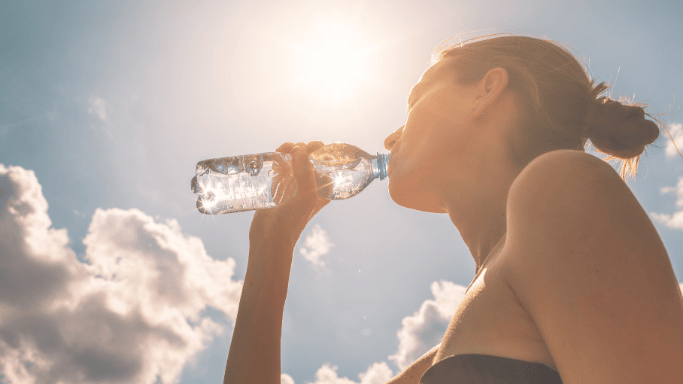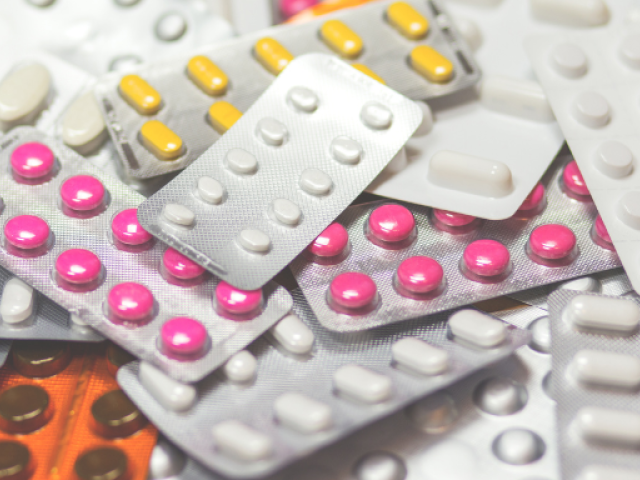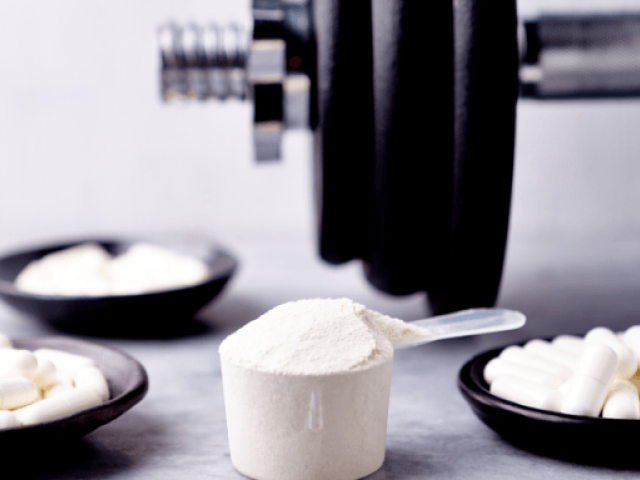
Creatine and Water Intake: What’s the Right Amount?
You’ve heard about creatine’s incredible benefits for muscle strength and power. But here’s what many people miss: proper hydration becomes absolutely critical when you take creatine.
Getting your water intake right can make the difference between maximizing creatine’s performance benefits and experiencing unwanted side effects.
In this article, we break down how much water to drink with creatine in simple terms you can actually use.
Key Takeaways
- Aim for 3-4 liters of water daily during maintenance, 4-5 liters during loading phases
- Each dose of creatine needs minimum 12-16 ounces of water for proper absorption
- Water retention from creatine happens inside muscle cells and enhances performance
- Adjust intake based on body weight, activity level, and environmental conditions
How Much Water Should You Drink When Taking Creatine?

The research gives us specific numbers that work. You need significantly more water when supplementing with creatine compared to your normal daily intake.
Studies show that creatine acts as an osmotically active substance.1 This means it naturally draws water into your muscle cells to maintain proper cellular function.
This water retention isn’t something to worry about. It’s actually part of how creatine works to enhance your performance and muscle growth.
The Science Behind Creatine and Water Requirements
Understanding why you need more water helps you get the dosing right. Creatine enters muscle cells through a sodium-dependent transporter system.
This transport process simultaneously pulls water into the cells to maintain the right balance. Research demonstrates that creatine supplementation typically increases total body water by 2-4% during initial loading.2
The good news? This water goes where you want it: inside muscle cells rather than causing bloating or puffiness.
Water Requirements by Phase:
| Supplementation Phase | Daily Water Intake | Duration |
|---|---|---|
| Creatine Loading | 4-5 liters (16-20 cups) | 5-7 days |
| Maintenance Phase | 3-4 liters (12-16 cups) | Ongoing |
| Baseline (No Creatine) | 2.7-3.7 liters (11-15 cups) | N/A |
Water Intake Guidelines for Creatine Supplementation

The amount of water you need depends on which phase of creatine supplementation you’re in. Each phase has specific requirements based on how much creatine you’re taking.
Most people follow either a loading protocol or go straight to maintenance dosing. Both approaches work, but they require different hydration strategies.
Daily Water Requirements During Creatine Loading
During the loading phase, you’ll consume 20-25 grams of creatine daily. This means you need 4-5 liters of water every day for 5-7 days.
Clinical research supports this increased intake to accommodate the greater osmotic load. Your muscles rapidly increase their creatine and water content during this period.3
Breaking this down practically: that’s about one cup of water every hour during your 16-hour waking period. This prevents overwhelming your kidneys and promotes steady absorption.
How Much Water to Drink with Each Creatine Dose
Every time you take creatine, you need at least 12-16 ounces of water with that specific dose. This isn’t just about mixing the powder properly.
Studies indicate that each gram of creatine requires approximately 75 mL of water for complete dissolution and absorption in your body.4
For a standard 5 grams of creatine, that translates to about 375 mL or roughly 12-13 ounces of water minimum. Many people find that using 16 ounces works better for complete mixing and reduces any stomach discomfort.
Water Per Dose Guidelines:
- 5g creatine = 12-16 oz water minimum
- 10g creatine = 24-32 oz water minimum
- 25g total daily (loading) = 60-80 oz just for creatine doses
Factors That Affect How Much Water You Need

Your individual water needs go beyond the basic recommendations. Several factors can significantly increase how much water you should drink while using creatine.
These factors often stack on top of each other. An athlete training in hot weather will need substantially more than someone exercising indoors in moderate temperatures.
Activity Level and Environmental Conditions
Your activity level dramatically impacts your water requirements. Research shows that athletes can lose 0.5-3.0 liters of fluid per hour during intense exercise.5
This becomes especially important for athletic performance and recovery. Proper hydration supports both your creatine supplementation and training goals.
Hot and humid conditions make this even more critical. If you’re training in temperatures above 77°F or humidity over 60%, increase your water intake by 500-1000 mL per hour of activity.
High altitude also increases your needs due to faster breathing and greater water losses through respiration.
Environmental Adjustments:
- Hot weather (>77°F): Add 500-1000 mL per hour of activity
- High humidity (>60%): Additional 250-500 mL per hour
- High altitude (>8200 ft): Extra 500-750 mL daily
- Air conditioning/heating: Add 250-500 mL daily
Body Weight and Individual Differences
Larger individuals need more water, both for baseline hydration and when taking creatine supplements. The International Society of Sports Nutrition recommends body weight-based dosing for optimal results.6
A 60 kg person might need 4.0 liters daily, while a 100 kg individual could require 4.8 liters during creatine supplementation. This accounts for differences in muscle mass and metabolic demands.
Age and gender also play roles. Older adults may need more conscious attention to fluid intake, while women may experience variations related to hormonal fluctuations.
Creatine and Water Retention: What You Need to Know

Let’s clear up the biggest misconception about creatine and water. The water retention you experience isn’t the bloated, puffy kind that makes you uncomfortable.
Controlled studies consistently show that creatine doesn’t increase dehydration risk when you drink enough water.7 In fact, it may actually protect against dehydration by increasing total body water.
This intracellular water increase supports muscle protein synthesis and enhances the cellular signals that promote muscle growth.
Benefits of Creatine and Hydration

The water that creatine draws into your muscles serves multiple purposes beyond simple hydration. It supports the phosphocreatine system’s ability to rapidly regenerate ATP during high-intensity exercise.
This is why you experience better performance, increased strength, and improved recovery when you take creatine properly. The water retention is actually part of the mechanism that delivers these benefits.
Analysis of 685 clinical trials involving over 12,800 participants found no significant increase in dehydration-related side effects with proper hydration protocols.8
Benefits Enhanced by Proper Hydration:
- Increased muscle strength and power
- Faster recovery between sets
- Enhanced muscle protein synthesis
- Improved cellular energy production
- Better exercise performance
- Improved sleep quality and recovery
- Reduced exercise-induced cell damage
Staying Hydrated While Taking Creatine: Practical Tips

Drinking 4-5 liters of water daily sounds overwhelming, but smart strategies make it manageable. The key is spreading your intake throughout the day rather than forcing large amounts at once.
Start drinking water early in the morning and continue consistently. Your body absorbs water better when you sip regularly rather than chugging large volumes.
Best Practices for Creatine Users
Time your creatine doses with meals when possible. Research shows that carbohydrate intake enhances creatine uptake through insulin-mediated mechanisms.9
This approach also helps distribute both your creatine dose and water consumption throughout the day. It reduces the chance of stomach upset and optimizes absorption.
Daily Hydration Schedule:
- Wake up: 16 oz water
- With breakfast + creatine: 16 oz
- Mid-morning: 12 oz
- With lunch + creatine: 16 oz
- Afternoon: 12 oz
- Pre-workout: 12 oz
- Post-workout + creatine: 16 oz
- With dinner: 12 oz
- Evening: 8 oz
Monitor your hydration status by checking urine color. Pale yellow indicates good hydration, while dark yellow suggests you need more fluids.
For best results, consider a high-quality creatine supplement like Jinfiniti’s Creatine + ATP. This unique formulation combines 4g of creatine monohydrate with 400mg of disodium ATP. It supports enhanced cellular energy production and ATP synthesis.
The combination is formulated for both physical performance and cognitive function. This makes it perfect for athletes and anyone seeking nootropic benefits from creatine.
If you’re new to creatine, check out our complete guide on creatine loading, timing, and beginner tips. It covers everything you need to get started safely and effectively.
Your Path to Proper Hydration and Performance

Getting your water intake right while taking creatine is straightforward. Follow the science-based guidelines we’ve outlined above.
Aim for 3-4 liters daily during maintenance. Increase to 4-5 liters during loading phases.
Remember that every 5-gram dose needs 12-16 ounces of water minimum. Adjust these amounts based on your body weight and activity level.
The benefits of creatine supplementation become much more pronounced with proper hydration. You’ll experience better performance, faster recovery, and fewer side effects.
Stay consistent with both your creatine supplementation and water intake. Your muscles will respond with improved strength, power, and endurance you can feel in every workout.
Stay Informed, Stay Healthy
Get the latest health insights, product updates, and exclusive offers delivered to your inbox.
Referenced Sources:
- https://pmc.ncbi.nlm.nih.gov/articles/PMC155510/ ↩︎
- https://pmc.ncbi.nlm.nih.gov/articles/PMC7871530/ ↩︎
- https://pmc.ncbi.nlm.nih.gov/articles/PMC3407788/ ↩︎
- http://www.nutricionhospitalaria.com/pdf/10321.pdf ↩︎
- https://pmc.ncbi.nlm.nih.gov/articles/PMC5603646/ ↩︎
- https://pmc.ncbi.nlm.nih.gov/articles/PMC5753968/ ↩︎
- https://pmc.ncbi.nlm.nih.gov/articles/PMC1421496/ ↩︎
- https://www.tandfonline.com/doi/full/10.1080/15502783.2025.2488937 ↩︎
- https://pmc.ncbi.nlm.nih.gov/articles/PMC3407788/ ↩︎

Get weekly health insights and exclusive offers by joining our newsletter.











